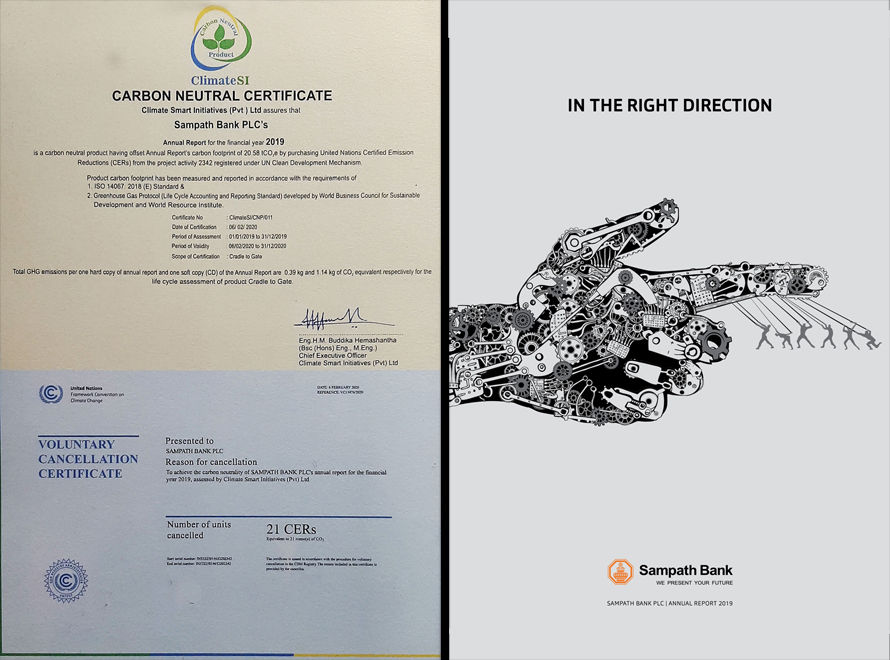The carbon footprint of the publication has been measured and reported in accordance with the requirements of ISO 14067: 2018 (E) Standard and Greenhouse Gas Protocol (Life Cycle Accounting and Reporting Standard) developed by the World Business Council for Sustainable Development and World Resource Institute.
Sampath Bank was able to offset their Integrated Annual Report’s carbon footprint of 20.58 tCO2e by purchasing United Nations Certified Emission Reductions (CERs) from the project activity 2,342 registered under the UN Clean Development Mechanism.
Speaking about this development, the Group Chief Financial Officer of Sampath Bank PLC, Ajantha de Vas Gunasekara said, “We at Sampath Bank have always ensured that our corporate values are inclusive of achieving environmental sustainability in our day-to day-operations.
By taking such measures to minimize our carbon footprint, we are driving our customers and stakeholders to follow suit and be environmentally conscious citizens.
As our Integrated Annual Report has been a carbon neutral publication for the fifth consecutive year, it stands as an example of our commitment to reduce emissions that could cause irreversible damage to the environment.”
In order to map the carbon footprint of Sampath Bank’s Integrated Annual Report, comprehensive data was gathered by Climate Smart Initiatives (Pvt) Ltd.
Following this in-depth analysis, the total amount of Green House Gas (GHG) emissions accumulated at each stage of the product lifecycle of the Annual Report 2019 was then measured in CO2 equivalent.
The CEO of Climate Smart Initiatives (Pvt) Ltd, Eng. Buddika Hemashantha voicing his thoughts on Sampath Bank’s repeated efforts to publish carbon neutral Annual Reports stated, “By producing a carbon neutral Annual Report for five consecutive years, Sampath Bank stands as a benchmark entity which has responded to the call of mother nature.
In an effort to mitigate the climate change phenomena, it is encouraging to see the motivation of the private sector and their commitment to protect planet earth through such timely efforts.
With the help of private sector institutions such as Sampath Bank, we can move from incremental to transformational change that will bring environmental sustainability.”
With an environment policy that has been formulated to fulfil diversified roles in its operational framework, Sampath Bank will extend its commitment towards a greener and safer environment by educating the masses on the social norms that are relevant to the communities Sampath Bank operates in.
The Bank will continue to initiate more corporate sustainability actions for the betterment of the economy, the nation and the earth.






















